Adventurer faces venomous scorpions in world-first kayak journey
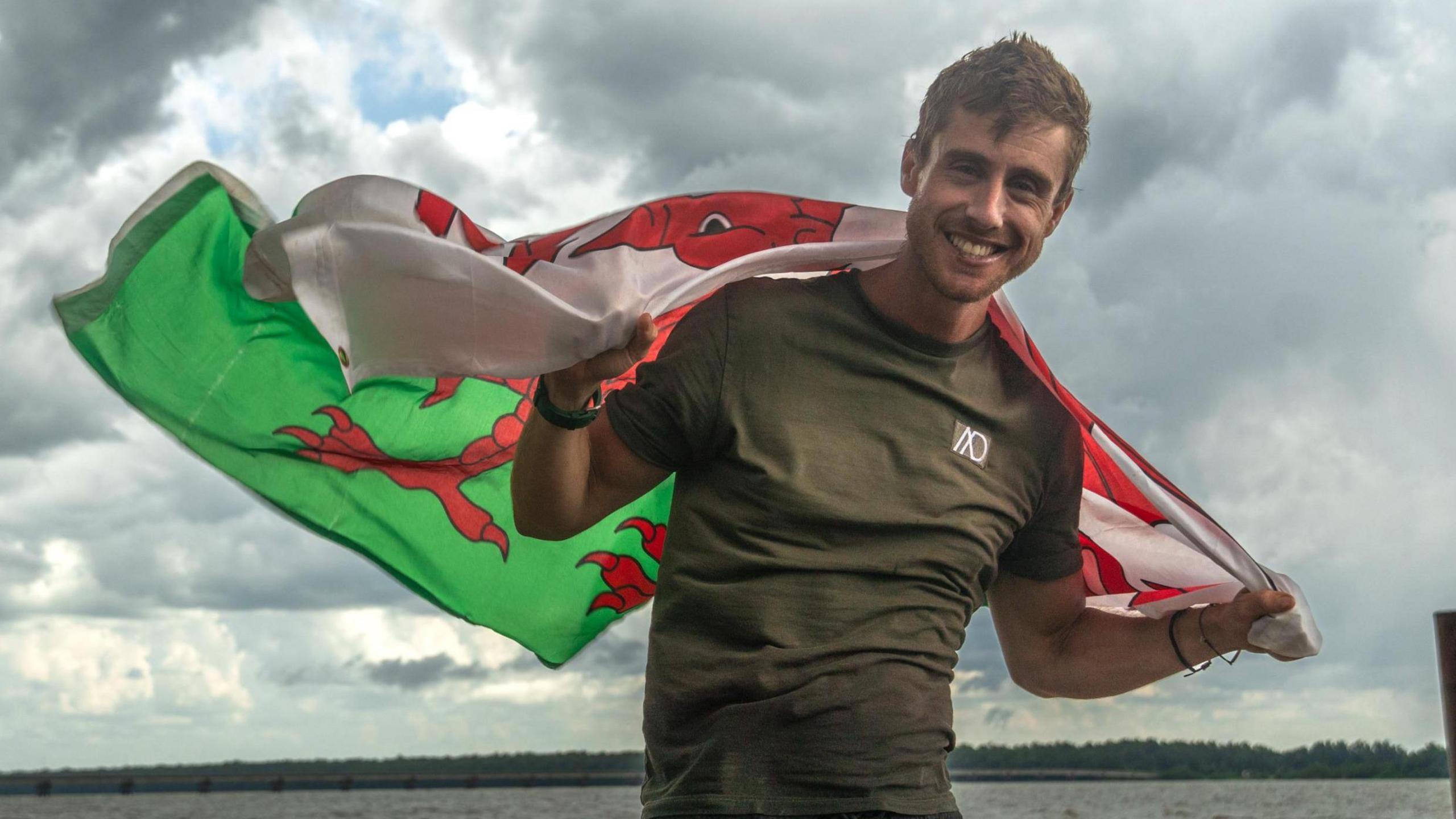
Ash Dykes kayaked the length of the Coppename river in Suriname from source to sea in 37 days
- Published
A Welsh adventurer has kayaked the length of one of the world's most remote rivers in a 37-day journey, setting a new world record and helping wildlife conservation.
Ash Dykes from Old Colwyn, Conwy, was last week part of a team that was the first to travel from the source of the Coppename river in Suriname in South America to the Atlantic Ocean.
The 33-year-old and his three fellow kayakers faced venomous scorpions, snakes, tarantulas and stingrays on their 380-mile (611km) journey through the Amazon rainforest.
"We didn't come across any community, any people, any means to charge [a satellite phone], any means to collect food," he said.
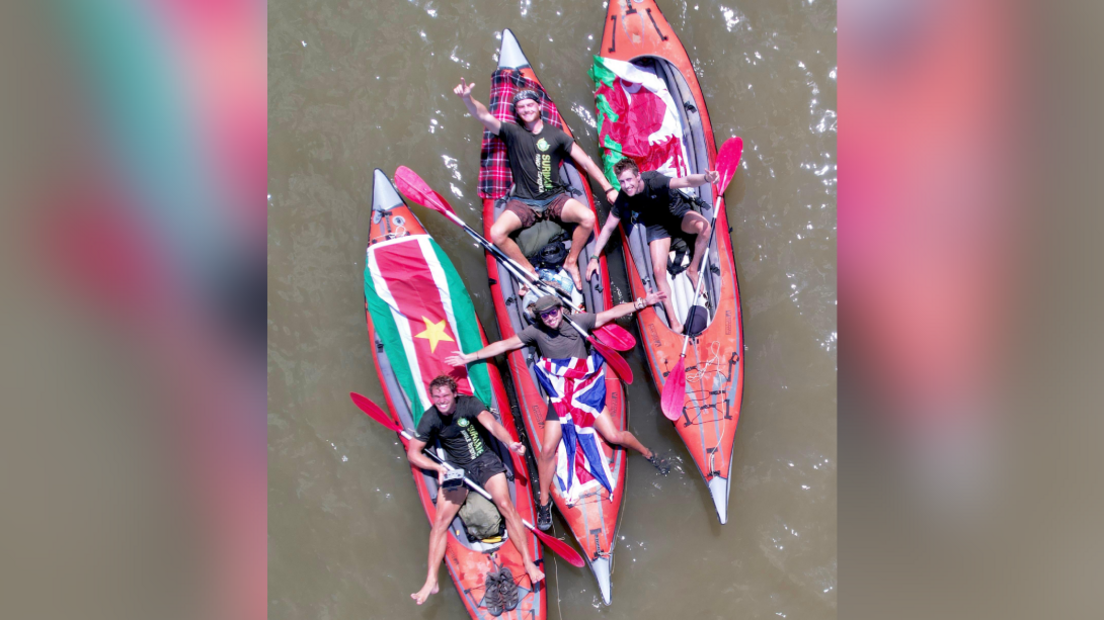
Ash and the team crossed the finish line from the river into the ocean on 4 October
It is the latest adventure for Dykes, whose previous challenges include becoming the first person to trek the length of China's river Yangtze solo.
Suriname has some of the most impenetrable jungle in the world, covering 93% of the country.
The Coppename river runs through the middle of the rainforest and is teeming with wildlife.
Ash dykes world record
Dykes said he and the team bathed in the river at night with electric eel, caiman, sting rays, giant river otters and piranha.
"You're wearing the head torch because it's night time and you've got all of these different coloured eye balls, and you can identify what is what," he said.
After carrying out research, they got the green light from Guinness World Records, external that a first was up for grabs.
"There was no evidence to suggest that anyone had ever been to the source, that it had even been mapped," he said.
Clifftop camping warning as adventurer goes viral
- Published17 August 2024
From the desert to the icy waters of Wales
- Published23 March 2024
Instagram tourists urged to respect beauty spot
- Published17 August 2024
Dykes and wildlife experts Dick Lock and Matt Wallace, along with cameraman Jacob Hudson, were dropped off by a helicopter which landed on a small sand bank.
When the roar of the helicopter was replaced by the sound of the Amazon rainforest, the magnitude of the challenge became clear.
"That was a pretty intimidating and terrifying scene," Dykes said.
"Knowing that if we stand on the back end of a snake, or if we make a mistake, you might not even find us again."
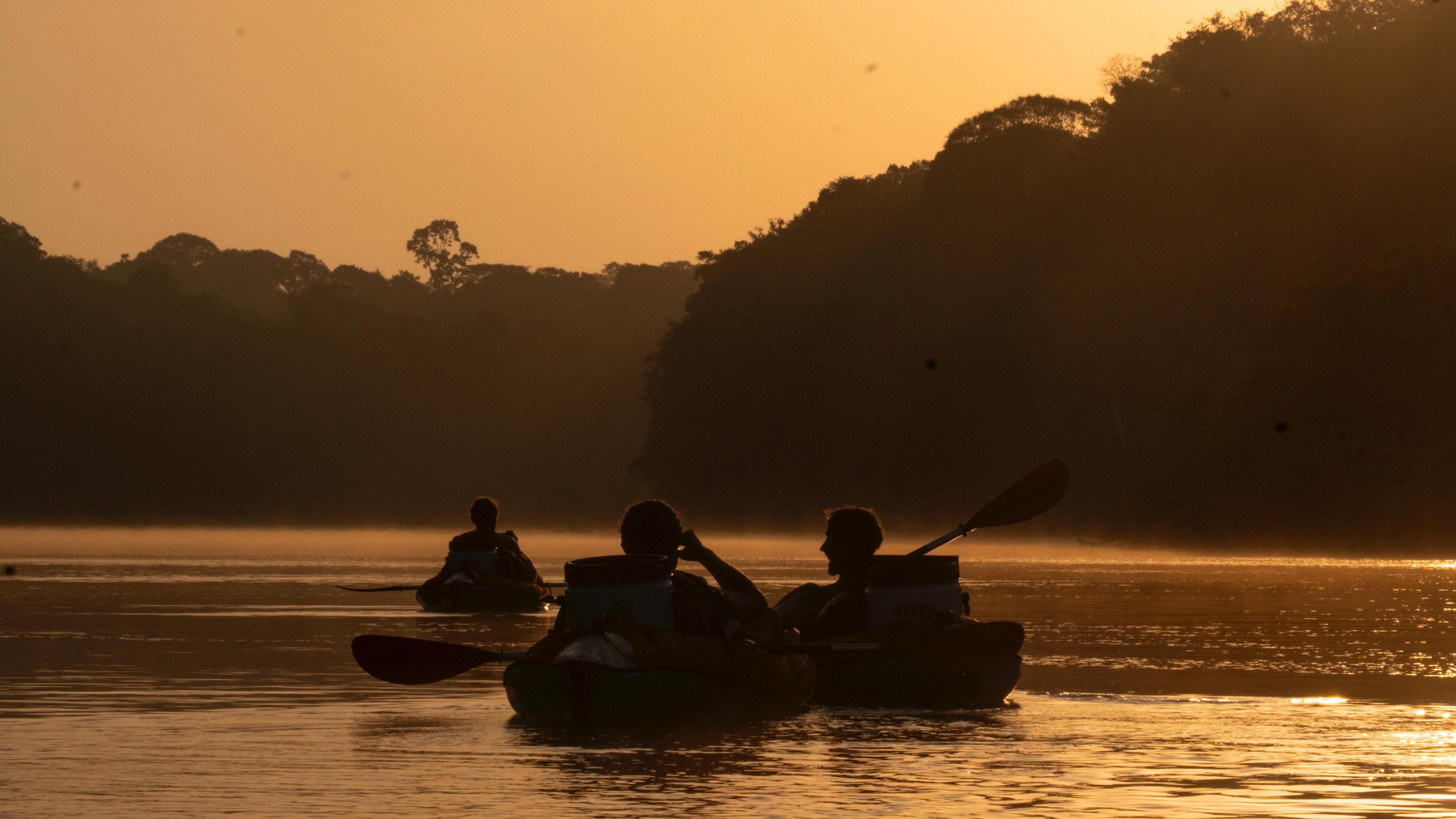
The team kayaked until dusk every day before setting up camp or sleeping in their kayaks
During a hike upstream to find the source of the river, Dykes smashed his feet into rocks and lost three toe nails, splitting his toe open.
The team also had to leave their kayaks at a base camp they set up when it became impossible to head further upstream, hiking through the jungle using machetes for five days.
After finding the source, they undertook a separate challenge.
This was to set a world record in becoming the fastest team to hike up Suriname's highest mountain, Juliana Top - and they succeeded.
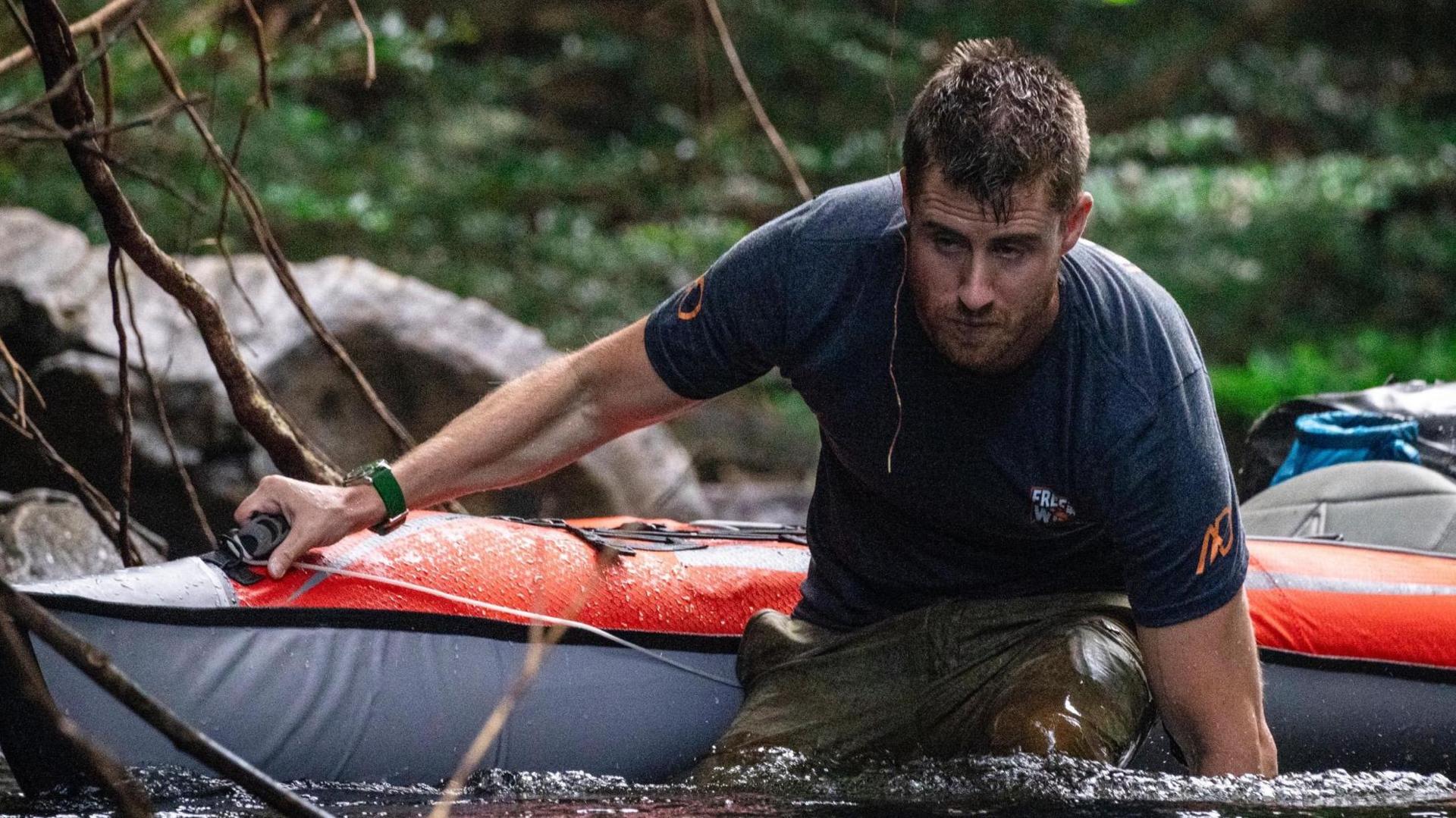
Ash Dykes and the team had to pull their kayaks upstream to get to the source of the river
From there they made their way back to the source and back to the kayaks.
They travelled to Suriname's second -highest mountain where they created another base camp to try and set a third world record.
This time they failed to meet the top, falling short by about 3km (1.86 miles) or 150m (492ft) in altitude.
"It was pretty devastating," Dykes said.
Their 11-day-hike was hampered by impenetrable rainforest, with the team covering just a few hundred metres in a whole day.
"We decided that if we pushed on we would be another four to five days without food. No guarantee of water," he said.
"It would simply be too reckless."
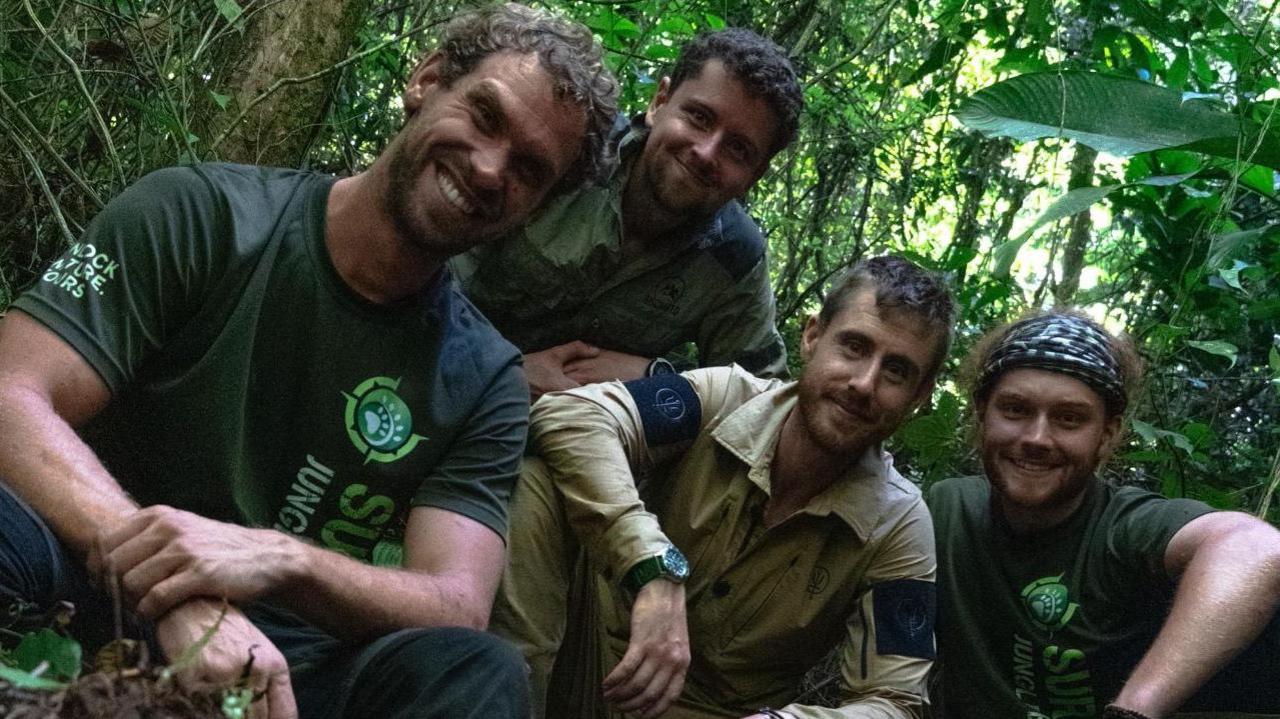
The men had to hike through dense jungle to reach the summit of Suriname's highest mountain
Once back in their kayaks, they travelled another 500km (310 miles) to the Atlantic Ocean.
They slept in their kayaks or on sand banks at night.
"We would stop about two hours before sunset, hang up the hammocks, get ready and then we would start fishing," Ash said.
They caught piranha, wolf fish, sting ray, which they ate along with adventure food rations, and drank water from the river.
"We were borderline starving," he said.
We would be burning about 6,000 to 7,000 calories and some days we would take in 600 to 1,000 calories."
They had just four table spoons of oats for breakfast, shared a bag of peanuts on a six-hour hike and then ate lentils in the evening when they could not catch fish.
"I've never thought about food so much in my life," he added.
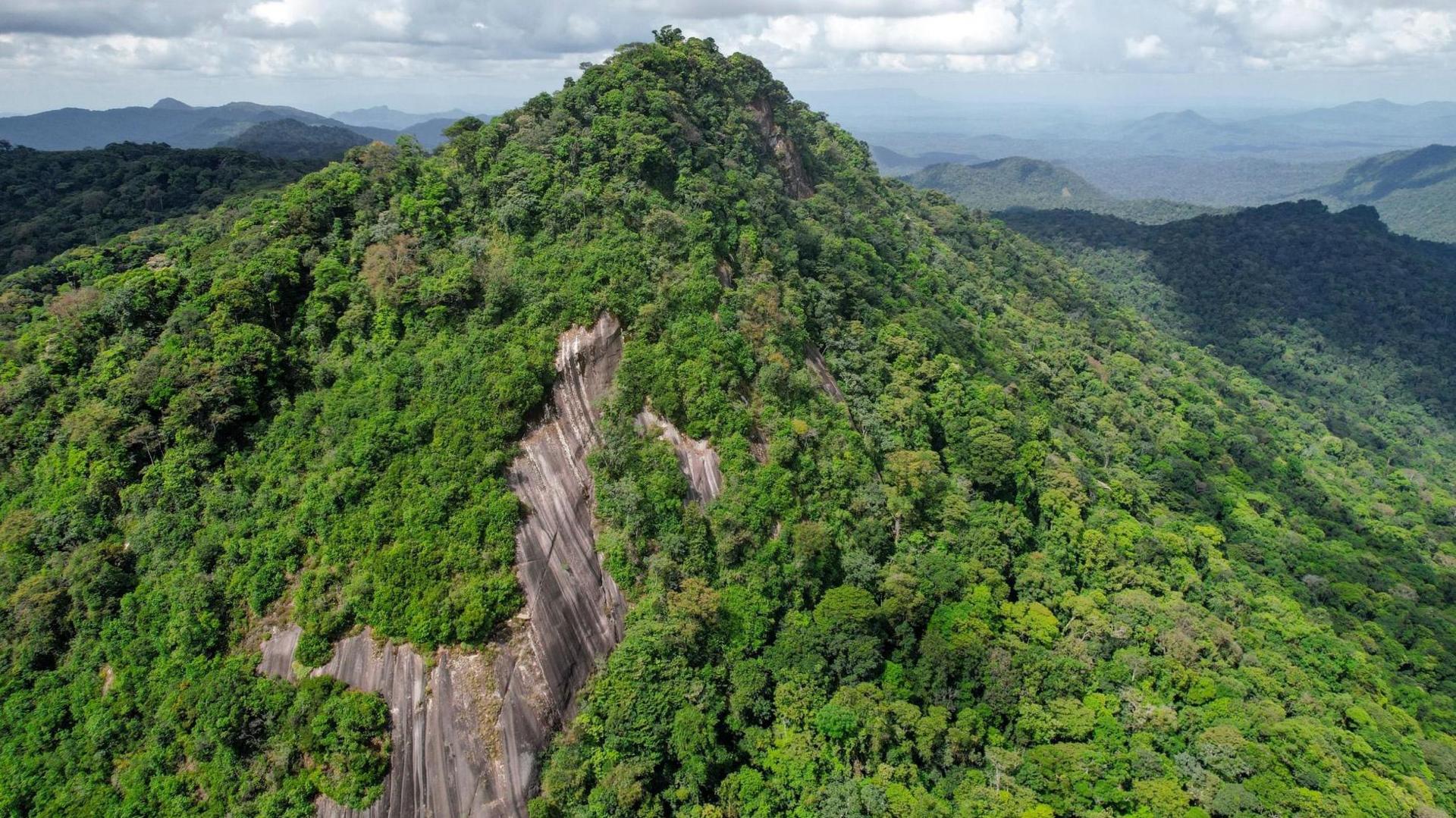
The team set another world record for the fastest team hike up Juliana Top, Suriname's highest mountain at 4,200 ft (1,280m)
His biggest fear was being stung by a sting ray while fighting the current as he was dragging his kayak over rapids.
"If you step on one of them and they catch you with the barb, that's pretty much evacuation," he said.
He also had to carry his deflated kayak through the jungle, watching out for tarantulas, snakes and scorpions, which was "very draining", Dykes said.
"Every single night there was an hour-long routine of pulling ticks out of your skin," he added.
"It must have been at least 400 ticks between us throughout the journey."
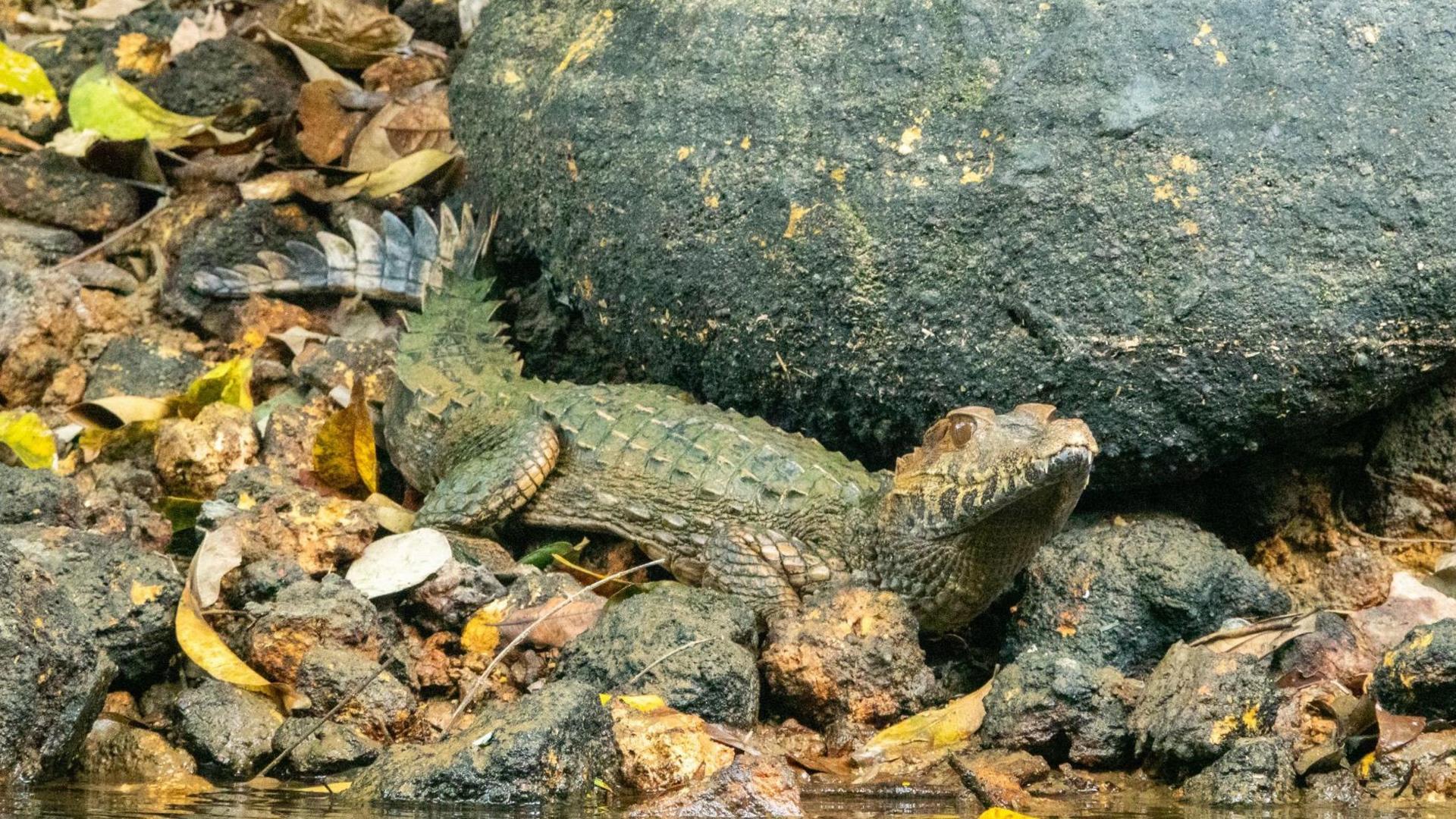
Caiman would wait on the river bank as the team were bathing
He learned rather than fearing the wildlife, he needed to live alongside it.
"We just got so used to it," Dykes said.
"Accidents can happen, and maybe a wolf fish or a piranha will try to take a chunk out of you, but ultimately they're not really there to get you," he said.
The singer Cher's conservation charity Free the Wild, external helped fund the expedition with the aim of documenting the wildlife and the effect human activity has on it.
"There were many animals that we came across that had probably never seen a human before," Dykes said.
"The jaguar and the capybara were so curious. They didn't run."
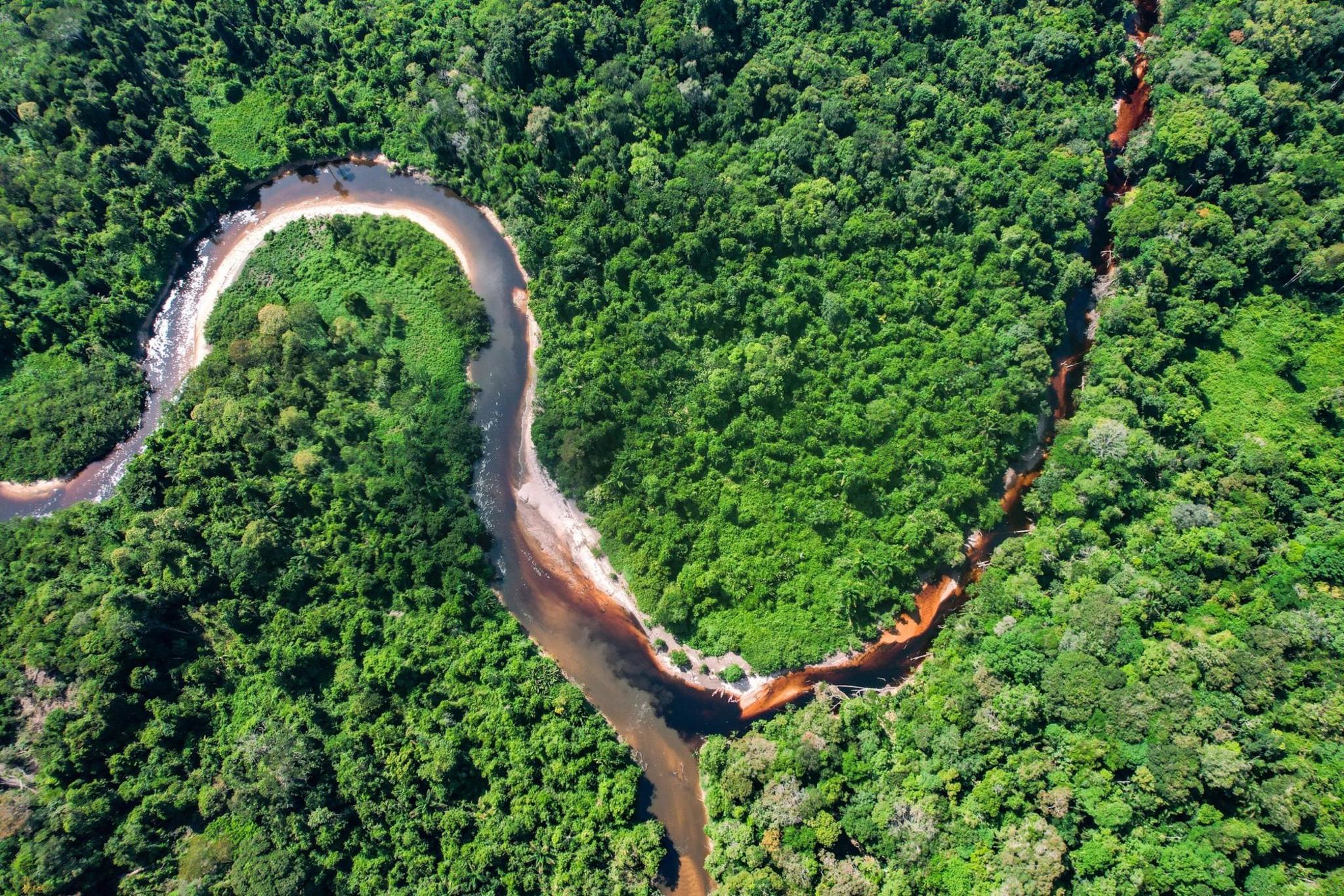
Suriname is covered in impenetrable rainforest
As they approached the sea, the river became tidal.
The banks were muddy and they couldn't find anywhere to sleep, so they tied themselves to a tree, trying to sleep in their kayak before being woken by mosquitoes.
Once the current had changed, they paddled ahead on the river.
"We had under five hours of sleep over the course of three nights and four days," he said.
"Those last three days were pretty brutal."
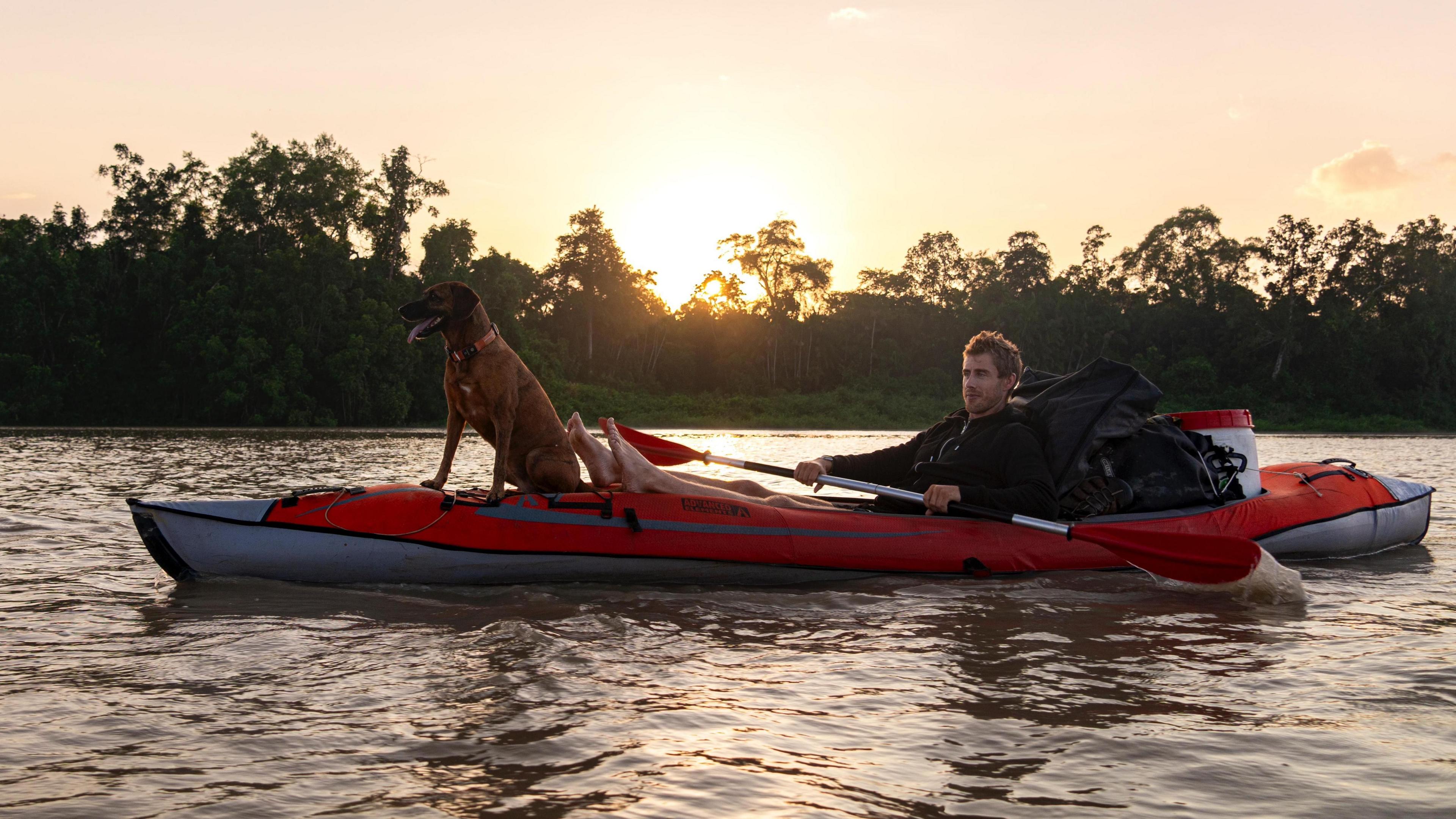
Dick's dog Meadow travelled with the team for the final few days
As they entered the Atlantic, feeling the waves and smelling the salty air, their world record was confirmed.
"It was a great feeling because we had all been battered in different ways," Dykes said.
"We all made it."